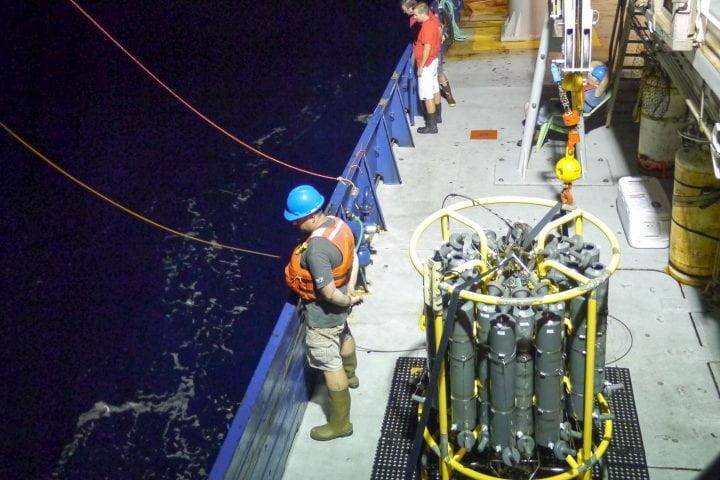Changes in Marine Nutrient Cycles Linked to Climate Change
Recent research conducted by the University of California, Irvine has shed light on the impact of climate change on marine nutrient cycles. The study, led by Professor Adam Martiny and graduate student Skylar Gerace, reveals unexpected changes in nutrient levels in the world’s oceans as a result of global warming.
Professor Martiny explained, “Model studies have suggested that when the ocean warms, it becomes more stratified, leading to a depletion of nutrients in certain parts of the surface ocean.” This study is the first to provide empirical evidence confirming the relationship between ocean temperatures and nutrient cycles.
By analyzing 50 years of nutrient data collected through the Global Ocean Ship-based Hydrographic Investigations Program (GO-SHIP), the research team discovered a significant decline in phosphorus levels in the southern hemisphere oceans. Phosphorus is a vital nutrient for marine food webs, and its decline could have cascading effects on marine ecosystems.
Surprisingly, concentrations of nitrate, another essential nutrient for marine ecosystems, have remained steady. This finding suggests that despite changes in other nutrient cycles, some systems are able to maintain stability in the face of climate change.
Skylar Gerace highlighted the importance of programs like GO-SHIP in providing empirical data on marine ecosystems. Without such data, it would be challenging to confirm the accuracy of climate models’ predictions. For example, while models had forecasted a decline in nitrate levels by now, direct observations show that this is not the case.
Looking ahead, the research team aims to investigate how these changing nutrient cycles will impact marine ecosystems in both hemispheres as climate change continues to unfold. By understanding the effects of climate change on marine nutrient cycles, scientists can better predict and potentially mitigate the consequences on ocean health.

